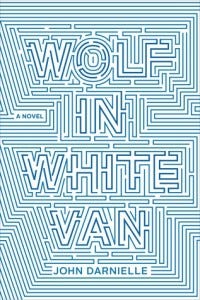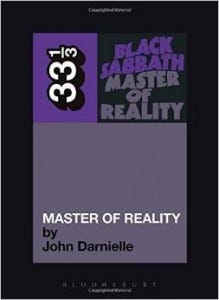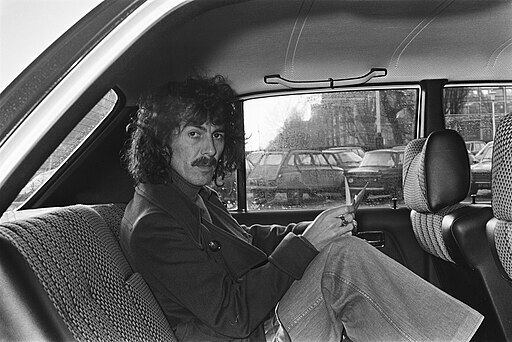interviews
INTERVIEW: John Darnielle, author of Wolf in White Van


Nearly every song on John Darnielle’s fourteen albums with his band, The Mountain Goats, is under four minutes long. Many are far shorter. But their brevity never leaves anything to be desired: whether the track is riotous and punchy or hauntingly slow, the lyrics all unfold into extraordinary stories. It’s no surprise that there was a petition started in 2012 to name Darnielle the next United States Poet Laureate.
Darnielle has been one of my favorite storytellers for going on a decade now. His songs are lush with literary, biblical, and historical allusions and flung across both small town America and far-off locales. The characters are colorful and often profoundly damaged — many would make compelling protagonists if they had their own novels to star in. Take “Fall of the Star High School Running Back”: in 1 minute and 49 seconds, we learn of a star football player who suffers an injury that ruins his chances at a professional sports career, falls into drugs, mistakenly sells acid to an undercover cop, and gets tried as an adult. (Oh yeah, and there’s a Biggie reference snuck in there too.) Whole albums can be devoted to one story arc: Tallahassee is a spectacular, devastatingly beautiful record that tells of a wildly dysfunctional couple (a pair of recurring characters in The Mountain Goats’ discography) who move to Florida and deal with the bitter realities of a viciously co-dependent, crumbling marriage.
I was ecstatic when I heard that the prolific songwriter was writing his first full-length novel: Wolf in White Van. The narrator is Sean Phillips; deeply scarred from an accident that happened when he was a teenager, he lives a reclusive life. He supports himself through subscription sales to Trace Italian, an intricate, mail-order role player game that he created some years back. When two teenage players take the game too seriously, he’s forced to face the consequences from the fallout while the reader is slowly revealed Philips’ own disturbed past.
I talked to John Darnielle about writing Wolf in White Van, role-playing games, eating too much candy, and what he’s reading these days.
Spoiler alert: This interview reveals several important plot points in Wolf in White Van.
I’ve always been really into your lyrics, and your albums often tell these great, comprehensive stories. And I know you’ve written a 33 ⅓ book. How was your creative process different for writing your first full-length novel?
It’s completely different. A song, I don’t want to say there’s nothing to it…lyric and melody and prose are very different things. I don’t sit down on the floor with a notebook working on my novel. And that’s how I write songs, I write songs in front of the piano or the guitar and I ad lib them out loud and they come together between that and the notebook. Whereas writing prose is a matter of sitting in front of a keyboard — a manual typewriter or a computer — and typing and writing an outline. I would never outline a song. [Laughing] And I have very harsh judgment of someone who outlines a song lyric.

The last chapter of the book is the first I wrote, and I wrote it right after I turned in Master of Reality. And it was very different then. It went through a lot of changes over the years, because there wasn’t any game when I started writing it. It was comparable to a song in that I was ad-libbing: I was writing a story and things were happening and it started to circle toward what what felt like an obvious ending. And, well, that would be a short story and not a particularly good one. It would just be a short story where somebody seems to die at the end. I asked well, what else is in that story? And started to tease it out from there. I went the other direction.
I do throw away a lot of drafts for verses and stuff, but nothing compared to this. The original draft of this, there were multiple narrators, and every person was trying to piece the story together. And I did that for a year and a half or so and then I threw all that away. I mean, it’s around somewhere, I pitched it all and at that point, I had the characters developed in their own voices and I could filter them all through the main narrator. So it’s more expansive, and it’s just bigger.
So that big change came about a year and a half ago?
No, no, a year and a half into it. I guess I started writing…I don’t know when I turned in the 33 1/3. [Laughing] I don’t have a sense of years. I had enjoyed working on a bigger thing ’cause it’s sort of like touring. It tells its own story to you as you do it. And it’s kind of invisible to everyone else. You go through this process of understanding the work itself and what it is to you. So I wanted to start on something — I was sitting around the house and I wanted to tell a different story. I think I had just watched a documentary about some teens who shot themselves.
What was the most difficult part of writing this for you?
The thing is, it’s challenging but I don’t think of it as very difficult — in part because I’ve done manual labor. [Laughing] I enjoy it, so the harder it is, the better it is.I did run into some structure stuff where I would have to sit down with the various chapters and figure [it] out. There’s the present day…then it sort of drifts off like a continent becoming islands toward the end so that by the final chapter you’re not in the present day at all. I had to keep track of the sort of thing you draw diagrams for, but I’m really not good with diagrams. I don’t have a good sense of space.
So keeping track of that involved — once I had the whole manuscript printed out — sitting down on the floor with it, putting the chapters out like pieces of a puzzle. And at one point, there was a big liberating moment when I realized that Chapter 16 should be Chapter 2. Right? And it was before what you have in front of you, but once I did that it was like “Oh! Hold up! Now that’s a lot clearer.” So the hardest part was keeping the structure coherent. Here’s a story taking part in two different pasts, plus the present day — so sort of braiding them was the hard part.
I want to go back to the game for a bit. I can’t believe that Trace wasn’t in the book initially because as I was reading it, I immediately thought, “Trace sounds awesome.” I had never come across mail order games before. I didn’t even know that was a thing.
Yeah! Neither did I!
And I wanted to know if you played mail-order games growing up.
What happened was I started with this image of a kid having a day and then putting a gun in his mouth. I decided not to go forward from there, I decided to go backwards instead. I had to figure out — what does this person then do in his life if he’s alive? And my initial draft was very different. He was sort of a scarecrow figure. But I thought no, you know, you would live a quiet life and just be yourself. You wouldn’t seem that remarkable to yourself after a while. And that it would be kind of healthy and good and you’d sort of understand that was your path, whatever toll it took on your appearance, it was just your path.
In practical terms, you can get a job and so forth, but I think of this guy as being kind of outcast in a sense. And I asked what you could do for a living, and, you know, there’s all kinds of things you can do from home. I knew a lot of guys who made a decent living being distribution for records that didn’t actually sell in big numbers. But if you were the point of contact — if you were AX/TION in Massachusetts or AJAX in Chicago — you could actually get a pretty decent rent check together just brokering all these small releases to the people who wanted them around the world. There was a whole culture and I thought, well, I don’t wanna write about a guy who does music mail order.
But then I thought, what else could you do? I remember starting to ask around. I actually do [play] now, while I was still working on it — my wife and I, some friends of ours were into that. And my friend Clayton said “we have a weekly game,” so I now go into a table-top thing. We don’t do D&D, but games of that sort, where you’re improv-ing moves within an environment that’s known chiefly to the game master. But yeah, I thought it just seemed like a thing you might be able to do and I thought that I had seen ads for it. And it turned out, when I asked Jason, the guy I know who writes games now, he told me the name of a company, Flying Buffalo. And they do [write games], but it’s computer generated entirely. But the thing still is huge. The Trace game is this theory of assembly that happens at one point and then it just exists in cabinets, as opposed to these automatic moves.
I know computer games take the same amount of time to put together, probably even more time, but there was something about Trace that seemed so mystical and complicated. Which it is!
It’s the engagement. When you play a computer game, even if it’s in the first person, you are moving some other creature around. If you do this thing, you are making a bunch of “I” statements about what you’re doing. You’re kind of method acting. It’s kind of not surprising to me that a couple of players could get pretty engaged. And I would think, if I was the narrator, it’s kind of surprising more people don’t go off the rails. It’s a pretty involved thing to do.
So, you mentioned that you initially had that last chapter when he shoots himself first. And just reading the final draft, we know that he’s disfigured but we don’t really know how it happens until you reveal it very casually.
That’s what makes it hard to talk about. Like, when somebody interviews, there’s this fact that runs throughout the book and you’re supposed to be figuring it out but you can’t go like “well the thing that he does” [Laughing] You can’t do that.
We’re so sensitive to spoilers now, but I’ve never encountered one in a book like this, where I truly don’t want to reveal it because I just loved the way that you did reveal it. And I was wondering, was there a lot of rewriting so that it’s seamless and casual and you just drop it in. Did you have a more obvious way of revealing it at first? Were you just going to say it from the start?
So, it was a question that was hanging with me as I wrote the chapters. I said, well, at some point I should state it baldly, you know, what happened, and be done with it. And that’s when I spent half the day researching guns and what kind of gun you could do that with and survive.
Originally I had him shooting himself with a shotgun. Then I discovered that if it’s a shotgun, you don’t live. You would not live. I had to watch — I mean, I did not have to — but I found stuff of people who were being taken to emergency rooms and stuff. And I went oh, a Marlin 39A, it looks like he could…I mean, I would never under any circumstances turn one on myself or anyone else, but so it was that. You dance around how to reveal and I ended up writing that line, “when you shoot yourself in the face with a Marlin 39A,” was the first clause of it. I thought, that’s the only way to do that. Once you start talking about it, you start talking directly…and that’s how it came to pass as this. So yeah, for me, it was sort of like, doing all the research and saying well, you know, once we put it on the table, we should put it directly on the table.
That scene, followed by his dad telling him that he didn’t want him at his grandmother’s funeral sort of destroyed me.
Right, that’s one of my favorite scenes in the book.
I can imagine that must’ve been very difficult to write, but it was great.
Yeah, that was a heavy one. It was one of those things where, in its own sense, writing is a form of role play. I have never been disinvited to a funeral, it’s something I imagined. But if you’re living within the weave of the story well enough, then it gets pretty upsetting to think about these people who won’t be fixed.
I also wanted to talk a bit about the two sets of teenage male-female friendships. We have Sean and Kimmy back in the day when Sean was in high school, and Lance and Carrie, whose turn in the game obviously ends quite tragically. And I couldn’t help flashing back in my mind to Cathy and the singer in This Year, which I know is autobiographical. So what draws you to writing about adolescent friendships, both in your books and your music?
I think they were pretty defining for me. It’s plainly the case that I always, as a child, got along a lot better with girls and women in my life than I did with dudes. I was kind of afraid of dudes, I was a scrawny guy. Up until junior high, high school, all the readers I knew were girls. And that’s what I liked to do, was read books. I remember, a very, very fond memory I have — it was a defining month, or maybe three months, for me. I can’t put parameters on it. I was bullied badly in junior high, I didn’t want to hang out where there were people because it was risky. But it was a big junior high, outdoor campus, so I would go to the end of the field and sit at the bleachers and read my book. And there was one other person doing the same thing. It was a girl named Teresa Lee Yang and we didn’t really talk a lot. We talked a tiny bit about our books and then would sit and read silently for an hour. And it’s like, “well, I’ll see you tomorrow.” [Laughing] And it was a defining relationship for me, in a really quiet way. And it was 8th grade, I think, so the year just ended and it was the end of that. But yeah, those are the relationships that have defined me most, I think.
So what were you reading back then, on the bleachers? And what are you reading now?
Back then, I read science fiction. That was it. I was gonna be hardcore, I was gonna be a guy who went to conventions. I did go to one. This is the thing to understand about science fiction fandom back then: now that all takes place online, it is a massive, fairly well-coordinated fan experience. It’s big, the movies make millions upon millions of dollars. But to be a science fiction fan in the late seventies, early eighties, you used to belong in a really small club. It was a minor subsection of the publishing business. It did okay, but science fiction writers weren’t generally reviewed that much. Heinlein would get reviewed, but they weren’t as respected and it was a subculture. Where I would argue now that it’s pretty much the general culture.
Harlan Ellison was somebody I read constantly: I thought he was the greatest, I had a bunch of autographed books of his. And I liked Fritz Leiber. I liked a lot of horror, which you could not get your hands on. It was very hard to get a hold of stuff. The only specific horror zine I remember then was called Whispers and it was hard to get copies of Whispers. I had a couple. Writers like Robert Aickman, Dennis Etchison, who I think was doing novelizations of stuff — and all that stuff opens on to this whole universe of mid-20th century, post-Lovecraft, but it goes more interesting directions for me. August Derleth, Clark Ashton Smith, Arthur Machen, Dennis Wheatley: all these weird, very strange dudes — [Laughing] some of whom have very unsavory politics. When I would get that, it was my favorite stuff. I really loved it.
Now, I read mainly, you know, what you’d call literature. [Laughing] I like stuff that’s harder to read, is a general rule. William Gass is a big guy for me. And right now, I’m reading something that’s not difficult and super pleasant. It’s called Hilde, I saw it on the desk of Sean at Farroux Strauss and Giroux and I said “can I have that?” Nicole Griffith, Hilde: it takes place in 8th century England. It’s the kind of stuff I’ve really been enjoying the past couple of years. Like I read Thomas Malory’s Death of Arthur and I was like “You know what? It’s time for me to be reading Merlin stories.”
And which writers would you say influence your writing the most?
I think William Gass, but I don’t think I sound like him. The thing about William Gass is he’s one of those guys who, if you told me, “oh yeah, this sentence here took me 10 hours to write,” I would believe him. His most recent book, Middle C, is about a single sentence. That’s the subject of the book. About a guy who is writing a sentence. [Laughing] His previous book was about a guy who was writing a preface to a book. [Laughing] But Middle C is about a guy who’s writing a single sentence and trying to get it exactly right. And I don’t know it’s what I actually do, because what I do, I think, is a little more about the mood of a movement toward a moment. It’s what I do in these little darkly illuminated moments. But I think the guy I’m looking at all the time is William Gass. And Joan Didion. Those are both sentence fiends. To me, Joan Didion is not about her subject matter. She’s about the sentences. She’s about the clauses. She’s about the way that they run and stack up on top of each other to create an effect.
My last question is not a question, but I just wanted to tell you I really loved the description of Sean going and buying a ton of candy and you describe him as sounding “an octopus feeding underwater.” And as someone who goes and buys a lot of candy and goes and sits in front of the TV and eats it, that’s exactly what it sounds like.
[Laughing] Thank you very much.
I’ve been cracking up about that.
The thing is, I’m speaking from my experience there. I’m a giant candy fiend. I’ll eat all the candy. The other thing is, there a bunch of scenes in the book, and I wonder whether it’s all of the best ones, right? Where I’m going well, I can give him this trait of mine. You know, why not? And it’ll just be a different trait if it’s in a person who’s quite different.
If that one stands out, it’s it’s because I am a guy who, when we stop on tour at a gas station, people will see what I’m buying and be like “are you really…naw…c’mon” and I’ll be like “nah, it’s good. It’s delicious. It’s the Bubble Gum flavored Mike and Ikes. I gotta have ‘em.”









